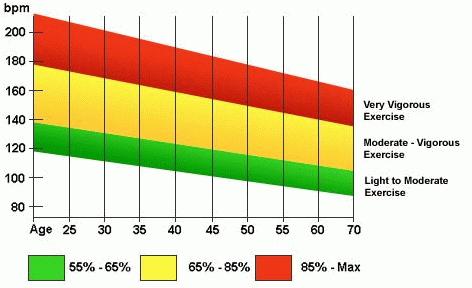I was speed training today (running as fast as I can for 100 yards) and got my heart rate up to 195. I'm 41 and slightly overweight. For some reason, all the online stuff says my max heart rate should be 220 - age = 179. For longer tempo runs, I'd try to keep my heart rate about at 165, as fast as I can go with out losing my breath. For easy runs, I try to keep it at 150.
You didn't say if you're male or female or what the activity was.
Studies have shown that HRmax on a treadmill is consistently 5 to 6 beats higher than on a bicycle ergometer and 2 to 3 beats higher on a rowing ergometer. Heart rates while swimming are significantly lower, around 14 bpm, than for treadmill running. Elite endurance athletes and moderately trained individuals will have a HRmax 3 or 4 beats slower than a sedentary individual. It was also found that well trained over 50s are likely to have a higher HRmax than that which is average for their age.

